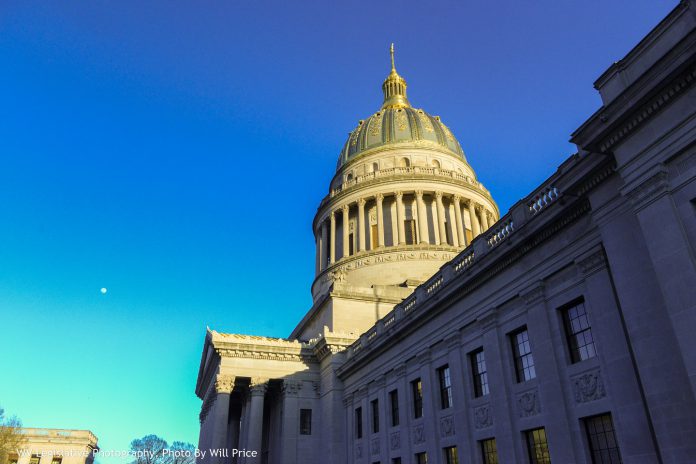Democracy requires citizen involvement. By spreading information across the state, West Virginia media play a crucial role in the state’s political process.
Located in the basement of the Capitol’s main building, the press room is filled with the sounds of typing fingers and computer editing as reporters strive to deliver the most recent events of the legislature to their respective media outlets, through which they keep the citizenry informed about state government.
“Transparency is always important in democracy,” said Alison Knezevich, reporter for the Charleston Gazette. “The media’s role is to let citizens know what’s going on and to question why people make the decisions they do.”
Reporters bring information to citizens using newspapers, radio and television, which allow citizens to take in information in whichever way is most convenient. The legislature also helps to maintain transparency by streaming the House of Delegates audio live online, allowing constituents to listen to sessions and committee meetings from the comfort of their homes.
Unlike live streaming, the media simply does not recite the events happening around them; it works to distinguish the most important issues before presenting them in an understandable way.
“We pick out the best, most important things and take them to the largest audience possible,” said Tom Breen, reporter for the Associated Press.
Reporters process information and ask themselves three questions: how many people the information affects, how much people care, and are there any consequences to the public. The answers to these questions determine what information gets reported and what information is passed over.
“What we try to do is make the process so people can understand it,” said Jeff Jenkins, reporter for MetroNews. “We cut through everything to see how it affects the person.”
Other than simply informing citizens, the media focuses on keeping government officials accountable for their actions.
“Sunlight sterilizes,” said Hoppy Kercheval, reporter for the Metro News. “It’s important to shine a light on the people doing the public’s business.”
The Legislature cooperates with the media by answering questions and reserving them space in both the House and Senate Chambers. Reporters sit at tables in the front of the House and in back of the Senate, and room is provided to set up cameras along the walls. Breen, who has previously reported from Connecticut’s Legislature, said West Virginia representatives are both cooperative and kind to reporters. “They are very accessible,” he said. “It’s much easier to get a hold of people and talk to them, and they’re much more willing to explain things.”
The media also provides a resource for senators and delegates who want to inform their constituents of what they are doing while at the Capitol or answer criticism about particular decisions. Several legislators print weekly columns in their hometown newspapers and many send out press releases to their respective news outlets, through which they notify citizens of decision and key issues.
Without the work of the media, thousands of citizens across West Virginia would be unable to participate in the political process. While some citizens take an active role by contacting their legislators about particular bills, some use the record provided by the media to determine how they will vote in state government elections. By providing a source through which people can judge the actions of their legislators, the media fulfills its “watch dog” role within state government.

